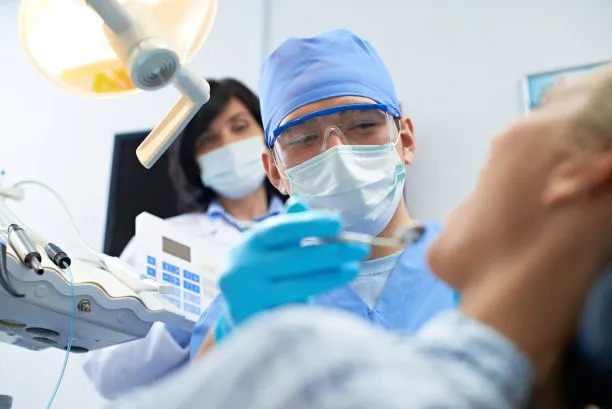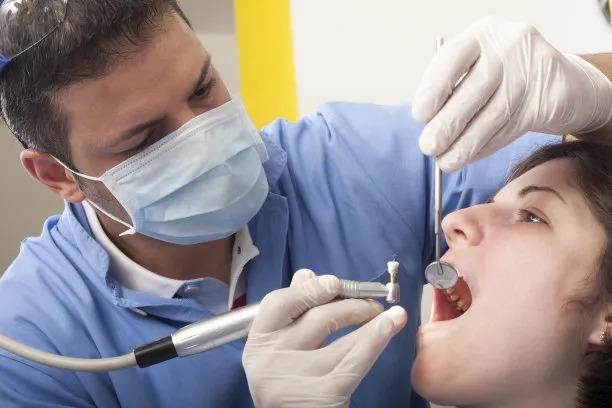Summary: Extracting a tooth is often seen as a last resort in dental care, yet understanding the process and its importance can significantly enhance oral health and overall wellbeing. This article explores the reasons for tooth extraction, the procedure itself, the recovery process, and the broader implications for a persons health. Each section breaks down common concerns, highlights the benefits of extraction when necessary, and reinforces the importance of dental care and regular check-ups. Through a comprehensive understanding, individuals can make informed decisions and maintain better oral health.
1. Reasons for Tooth Extraction

Tooth extraction may be necessary for a variety of reasons. One of the most common reasons is severe tooth decay that has compromised the integrity of the tooth. When decay reaches the pulp, a root canal may not be sufficient to save the tooth, leading to extraction as the best option. Early intervention can often prevent more extensive procedures, which emphasizes the importance of regular dental visits.
Another significant reason for extraction is periodontal disease. This condition affects the gums and can lead to tooth mobility and eventual loss if not addressed properly. In advanced cases, removal of affected teeth can help improve gum health and prevent further complications, such as abscesses or systemic infections.
Lastly, overcrowding can necessitate tooth extraction to make room for orthodontic treatments. In cases of overbite or misalignment, a dentist may recommend removing one or more teeth to create space for corrective procedures. This process is aimed at not only improving aesthetics but also ensuring better oral functionality.
2. The Tooth Extraction Procedure Explained
The tooth extraction procedure typically begins with a thorough evaluation by the dentist. This may involve X-rays to assess the tooths position and the surrounding structures. Proper planning is crucial to minimize complications and to prepare for the extraction, whether it’s a simple or surgical process.
A simple extraction, usually done under local anesthesia, involves loosening the tooth with special tools and removing it through the socket. The dentist carefully monitors the patients comfort throughout the procedure. In contrast, surgical extraction may be required for teeth that are impacted or broken beneath the gum line, demanding a more complex approach including incisions.
After the extraction, the dentist provides detailed aftercare instructions to promote healing and minimize discomfort. Understanding these steps can alleviate concerns and help patients know what to expect during the recovery phase.
3. Recovery After Tooth Extraction
Recovery from tooth extraction varies from person to person and largely depends on the tooths location and the complexity of the procedure. Initially, patients may experience swelling and discomfort, which can be managed with prescribed medications or over-the-counter pain relief.
Following the procedure, it is crucial to adhere to the dentists advice regarding diet. Soft foods should be consumed, and it is essential to avoid activities that may disrupt blood clots, such as sucking or using straws. Maintaining proper oral hygiene is also necessary, but care should be taken around the extraction site.
It is often advised to attend a follow-up appointment to ensure that the extraction site is healing properly. Recognizing signs of potential complications, such as excessive bleeding or infection, is also vital for long-term recovery and overall health.
4. The Implications for Overall Health
Tooth extraction is not merely a dental procedure; it has broader implications for a persons health. Maintaining an optimal oral health status through appropriate treatments influences conditions such as diabetes, heart disease, and respiratory issues. This connection emphasizes the importance of addressing dental problems swiftly, rather than allowing them to escalate.
Additionally, healthy oral hygiene habits post-extraction can promote overall wellbeing. Patients are often motivated to adopt better practices following an extraction, such as improved brushing and flossing routines. Good oral hygiene not only prevents future dental issues but also contributes to better overall health.
Furthermore, undergoing tooth extraction when necessary can enhance ones confidence and comfort. In cases where decay or damage is visible, such actions can significantly improve a persons self-esteem and willingness to engage in social interactions. Ultimately, prioritizing oral health through appropriate actions reflects a commitment to overall wellbeing.
Summary:
In conclusion, understanding the process and importance of tooth extraction is crucial for maintaining oral health and overall wellbeing. By knowing the reasons behind extractions, being familiar with the procedure, adhering to recovery guidelines, and recognizing their health implications, individuals empower themselves to make informed decisions regarding their dental health. A proactive approach to oral care ensures a brighter future, free of complications.
This article is compiled by Vickong Dental and the content is for reference only.
Vickong Dental
Vickong Dental is a large medical group established in Hong Kong in 2008 by professors from well-known medical universities in Guangdong and Hong Kong, as well as medical doctors from key national '985' universities (including Master's supervisors and senior professors). The chain of branches brings together expert dentists with PhDs and Master's degrees from Hong Kong and Mainland China, committed to providing high-quality dental treatment.
"Vickong Dental Practices the University Motto of 'Healing and Serving Society,' with a Stable Operation for Sixteen Years. It Has Been honored with Hong Kong Enterprise Leaders's Choice,' and is a Global Trusted Implant Center for the Nobel Implant System. Recommended by Hong Kong Metro Broadcast and Guangdong Television, it Serves Customers from Over Thirty Countries and Regions, Gaining the Trust and Favor of Citizens from the Guangdong-Hong Kong-Macau Greater Bay Area and Surrounding Cities.

Thousands of customers' unanimous praise
The most recognized and highly recommended dental service by customers in the Guangdong-Hong Kong-Macau Greater Bay Area
We Ensure You Receive Detailed Care and Attention Here
Hong Kong standards, Shenzhen prices, Your Trusted English-speaking dentists

Vickong Dental Medical-Grade Instrument Disinfection Process
Vickong Dental Medical-Grade Instrument Disinfection Process

Vickong Dental Chain: A Warm and Comfortable Environment for Treatment






Appointment Hours

Q&A
Why choose Vickong Dental?
Vickong Dental practices the university motto 「Medicine to Benefit Society」, with each branch bringing together highly qualified dentists with doctoral and master’s degrees from Hong Kong and the Mainland, and has maintained seventeen years of steady operation。Recipient of 「2024 Hong Kong Enterprise Leaders Brand」, 「2025 Hong Kong Enterprise Leaders Brand」, a Nobel Biocare Global Trusted Implant Center, and a brand recommended by Metro Radio Hong Kong and Guangdong TV。
To date, we have served customers from more than thirty countries and regions,earning exceptionally high word-of-mouth recognition and trusted recommendations from residents across the Guangdong-Hong Kong-Macao Greater Bay Area and surrounding cities
We have eight major branches in Zhuhai、Shenzhen,and a consultation and service assurance center in Hong Kong,so you can book a free consultation at any time for any questions,which is very reassuring.
If I do not accept the quotation after the CT scan, will I be charged??
No! As long as the actual treatment has not started, you will not be charged any fees.
Will there be any additional charges during the treatment process?
No, there won’t be any additional charges. Before treatment begins, we will clearly explain the treatment plan and its corresponding fees. Only after the patient agrees and signs the consent form will we proceed with the dental service.
Can I pay in Hong Kong dollars?
Yes. Vickong Dental accepts payment in Hong Kong dollars. The amount will be converted based on the exchange rate of the day, and the applicable rate will be clearly communicated to you in advance.
Can I reschedule my appointment at any time?
Yes. Please contact us via **WeChat** or **WhatsApp** as early as possible, providing your original appointment time and details, along with your preferred new date and time slot for rescheduling.













